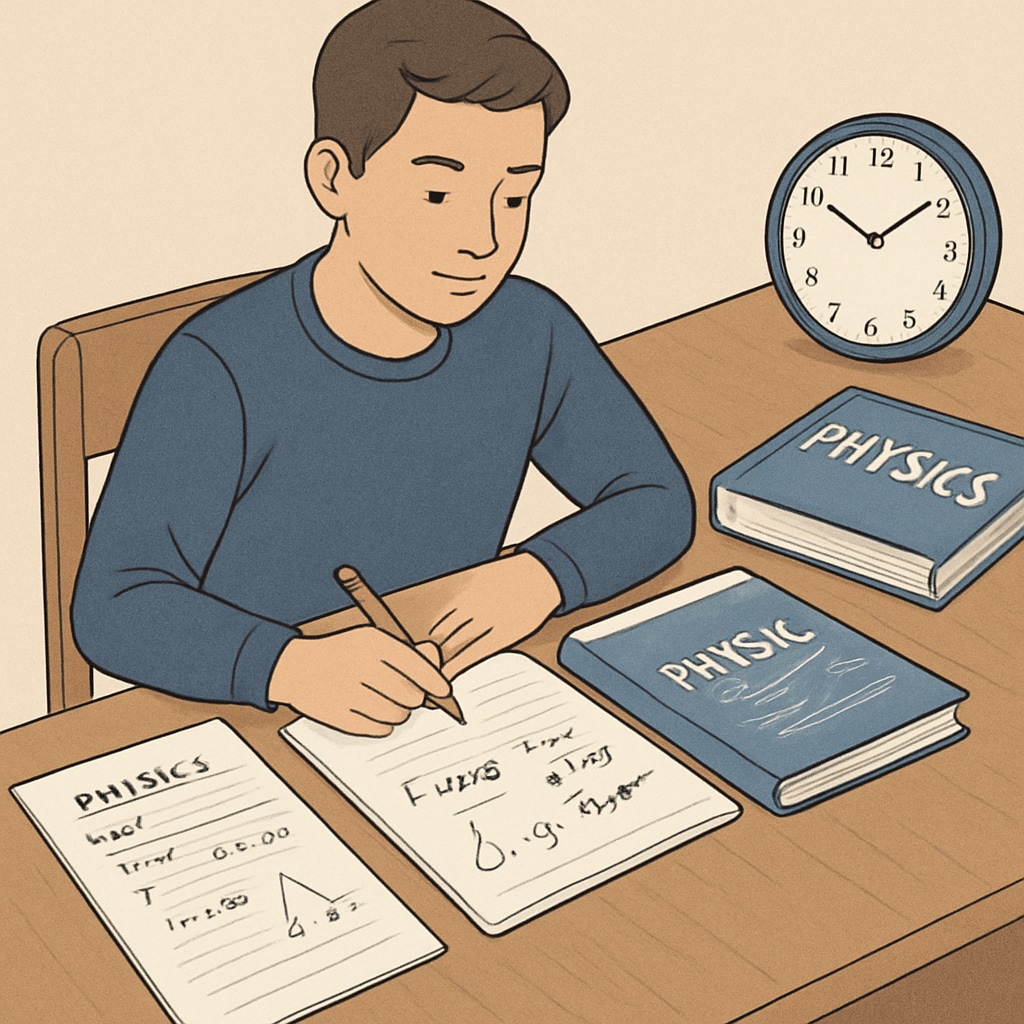Tackling multiple physics backlogs can be daunting, especially under tight time constraints. Students aiming for a BSc Physics degree often find themselves overwhelmed by unfinished assignments and unclear concepts during their final attempt to clear these challenges. This article explores practical strategies for overcoming physics backlogs in the K12 stage, focusing on time management, concept mastery, and integrating practice into daily study routines.
Understanding the Root Causes of Physics Backlogs
Before diving into solutions, it’s essential to understand why students face backlogs in physics. Common reasons include a lack of foundational understanding, poor time management, and insufficient practice. Physics, being a conceptual and application-heavy subject, requires students to connect theoretical knowledge with real-world applications effectively. Without this connection, backlogs can quickly pile up.
For example, students often struggle with topics like electricity or mechanics because they attempt to memorize formulas without understanding the underlying principles. Furthermore, procrastination and disorganized study schedules compound the problem, leaving little time for review and clarification.
Time Management: The Key to Clearing Backlogs
Effective time management is crucial when dealing with multiple backlogs. Here are some actionable steps:
- Prioritize topics: Start by identifying high-weightage topics or those you find most challenging. Allocate more time to these areas.
- Create a realistic schedule: Divide your available time into focused study blocks, ensuring each session targets specific topics or assignments.
- Eliminate distractions: Use tools like app blockers or study timers to maintain focus during study sessions.
- Incorporate breaks: Short breaks between study blocks can improve retention and reduce fatigue.
For additional guidance on effective time management, refer to this comprehensive resource on time management on Wikipedia.

Mastering Concepts: The Foundation of Physics
Without a strong conceptual foundation, clearing physics backlogs can feel like an uphill battle. To master physics concepts:
- Break down complex topics: Simplify challenging concepts into smaller, manageable parts.
- Use visual aids: Diagrams, videos, and simulations can help you visualize and understand abstract ideas.
- Ask questions: Seek clarification from teachers, peers, or online forums to resolve doubts promptly.
- Connect theory to practice: Relate theoretical concepts to real-world examples or experiments to enhance understanding.
For example, if you’re studying Newton’s laws, try observing their application in everyday activities like driving or sports. This approach not only deepens understanding but also makes learning more engaging.
Practical Strategies to Stay Consistent
Clearing backlogs requires consistent effort. Here are some tips to maintain momentum:
- Set daily goals: Break larger backlogs into daily targets to avoid feeling overwhelmed.
- Test your knowledge: Regularly attempt practice problems or past exam papers to assess your understanding.
- Reward progress: Celebrate small wins to stay motivated throughout the process.
- Join study groups: Collaborating with peers can provide new perspectives and keep you accountable.
Additionally, consider using online resources like Britannica’s physics section to supplement your learning and gain deeper insights into complex topics.

Preparing for Your Final Attempt
As the final attempt to clear backlogs approaches, focus on revising key topics and practicing under exam conditions. Here’s how:
- Review important formulas: Create a formula sheet for quick reference.
- Simulate exams: Time yourself while solving mock papers to build confidence.
- Focus on weak areas: Spend more time revisiting topics you find most difficult.
Remember, the goal is not just to clear backlogs but to build a solid foundation for future studies, especially if you’re planning to pursue a BSc Physics degree.
Conclusion: Building a Strong Physics Foundation
Overcoming physics backlogs requires a combination of effective time management, concept mastery, and consistent practice. By prioritizing tasks, leveraging resources, and staying disciplined, students can not only clear backlogs but also develop the skills and knowledge needed for advanced studies in physics. Remember, every small step contributes to building a stronger foundation for your academic journey.
Readability guidance: Use short paragraphs for clarity, include actionable tips in lists, and incorporate transition words for better flow. Avoid jargon and keep explanations simple yet precise.


